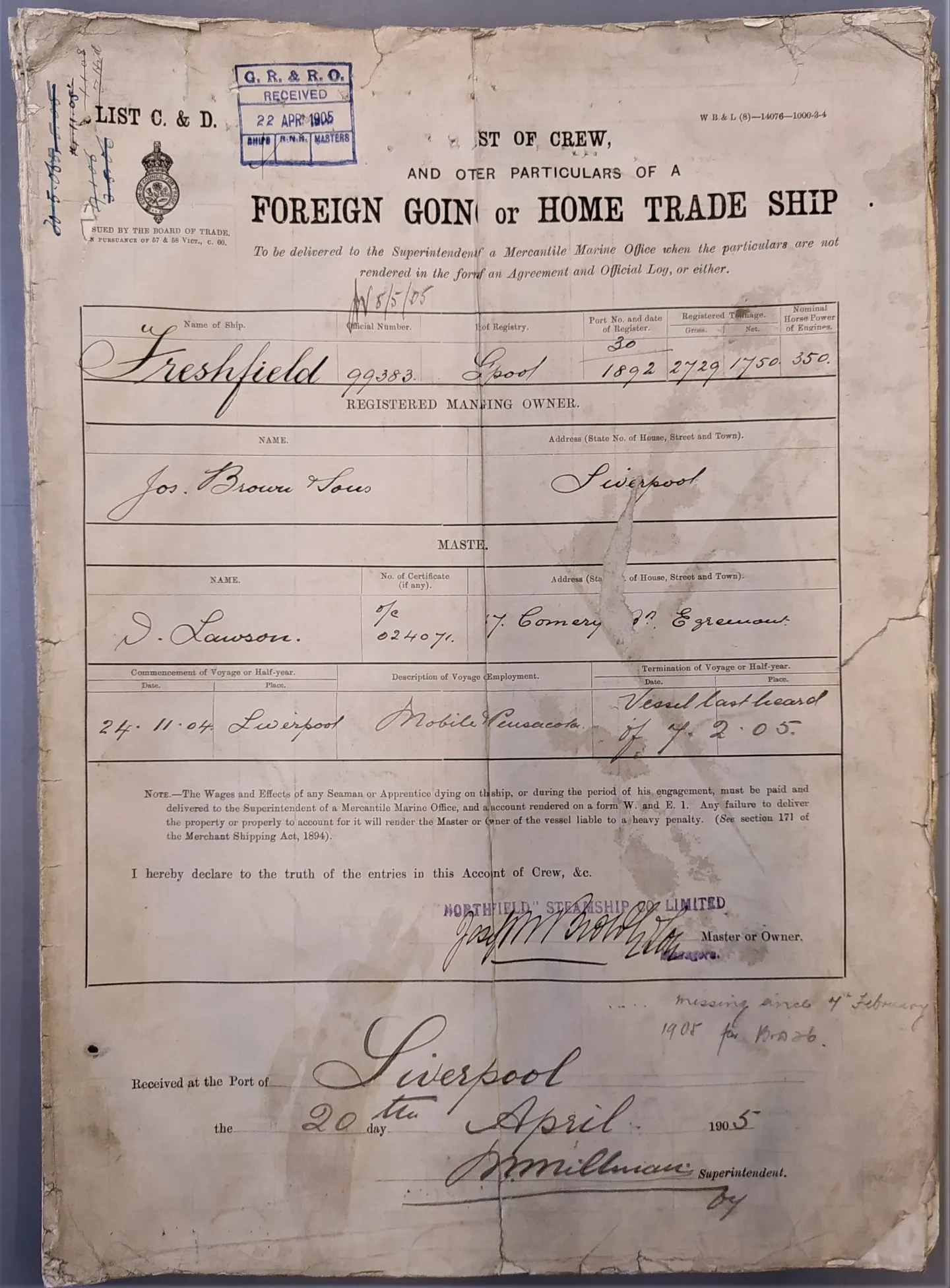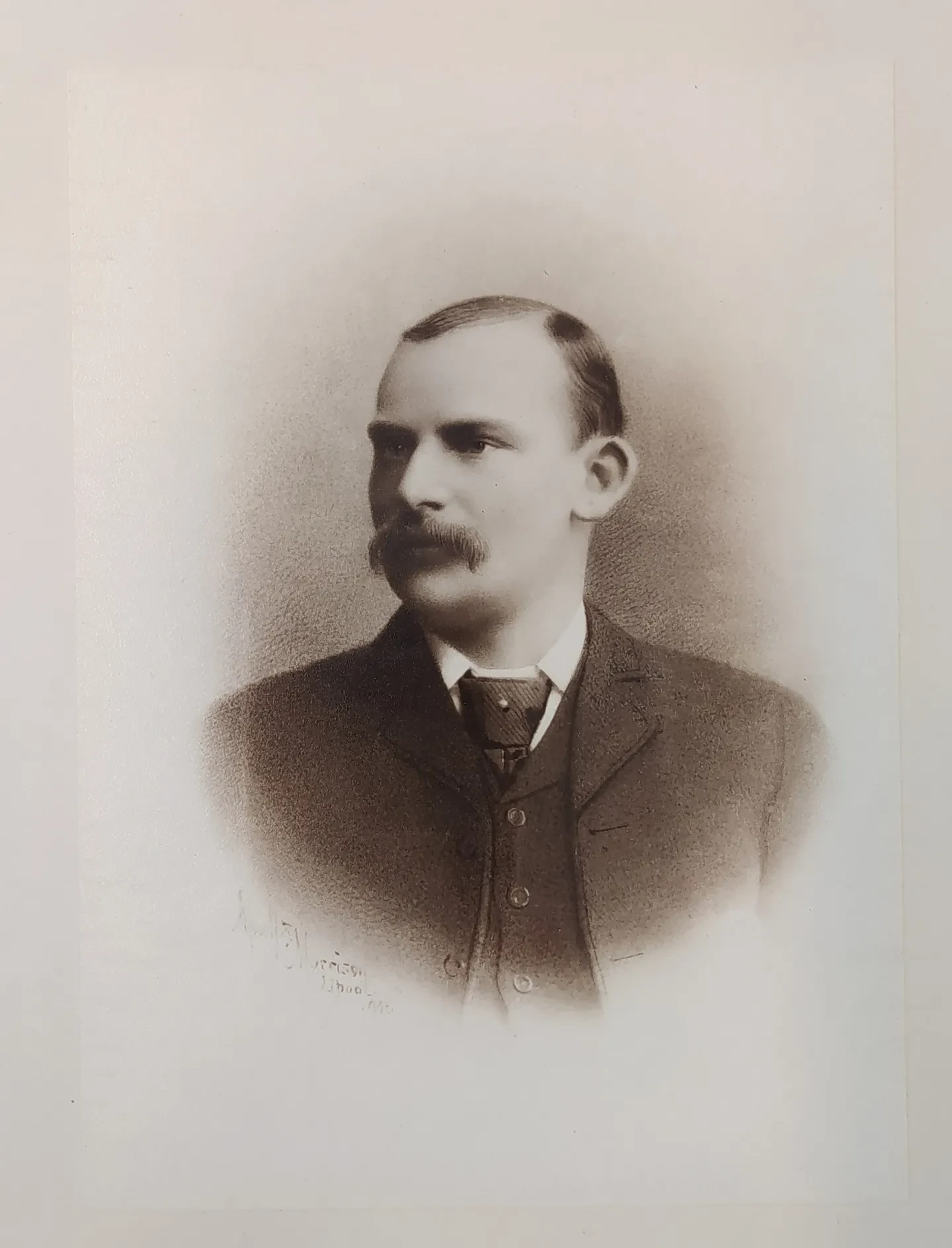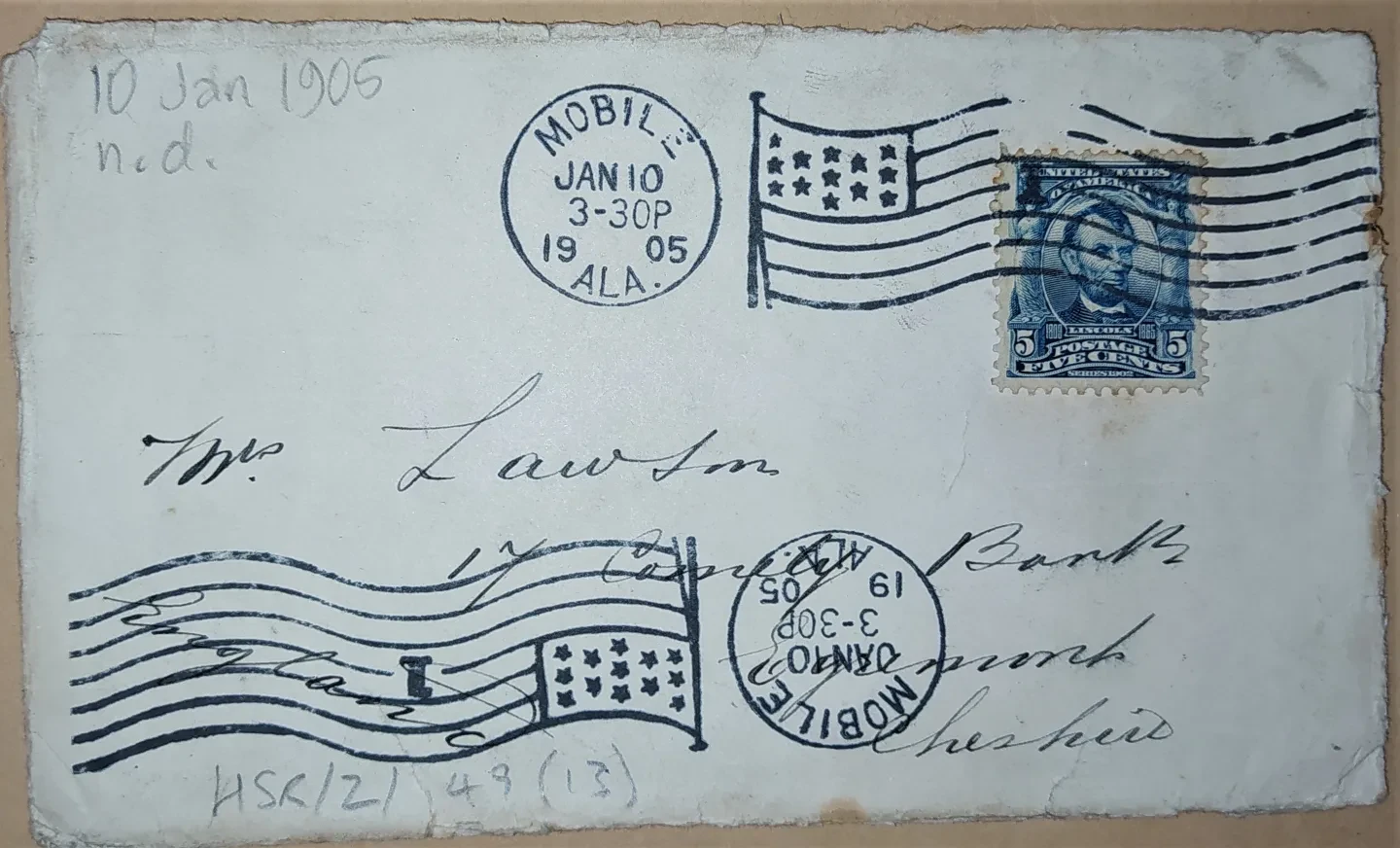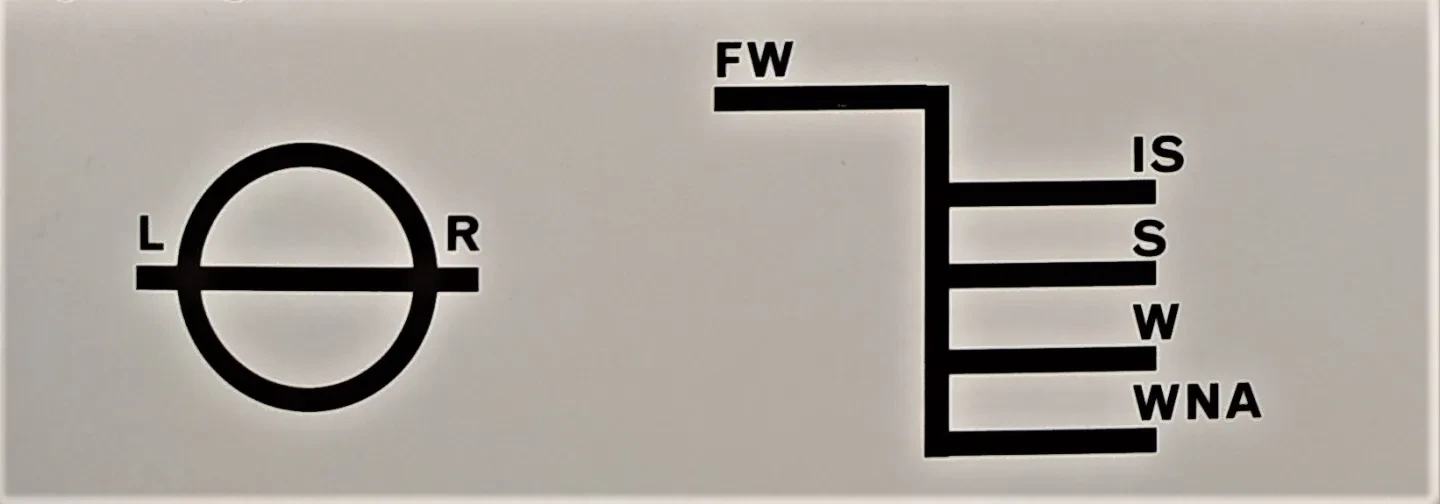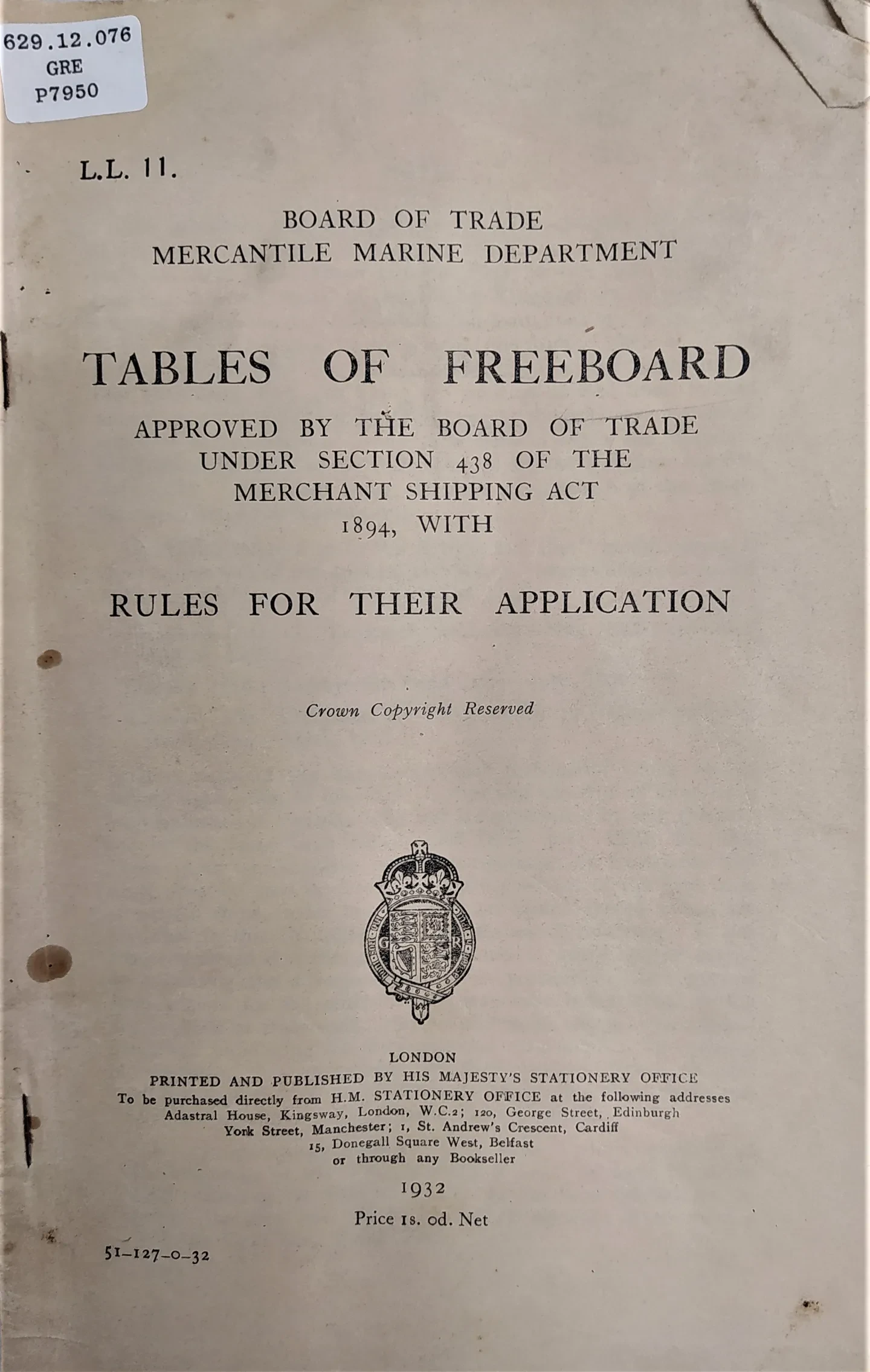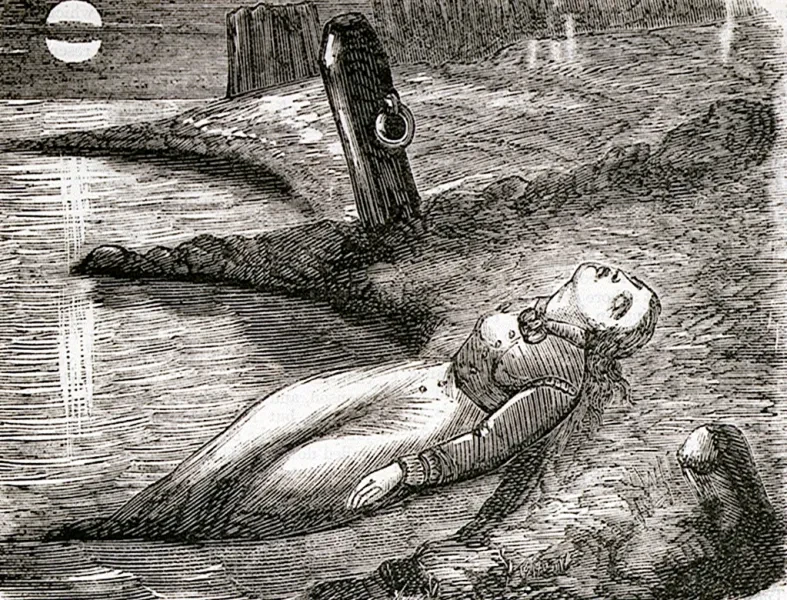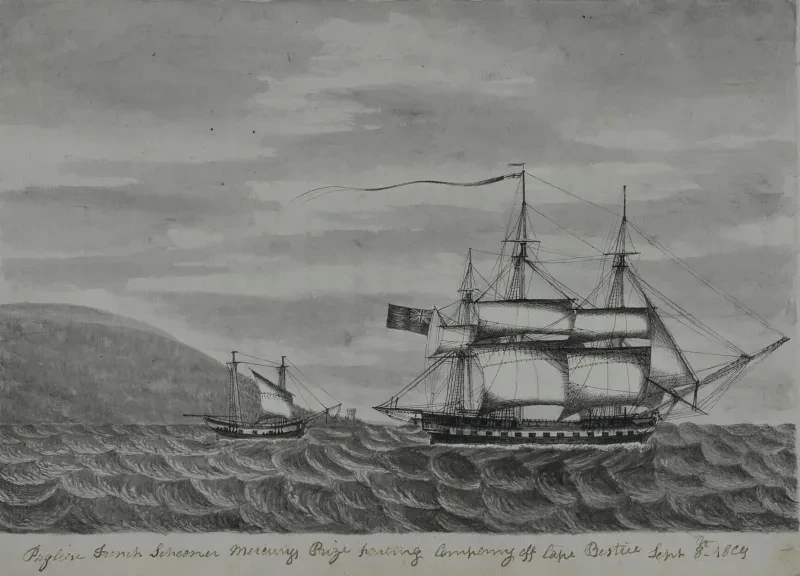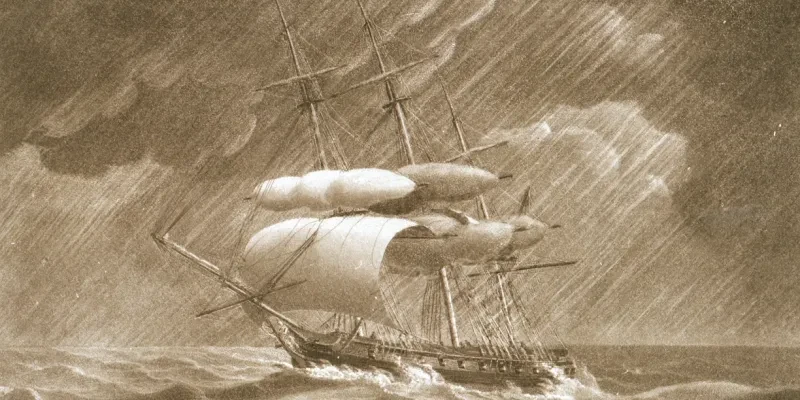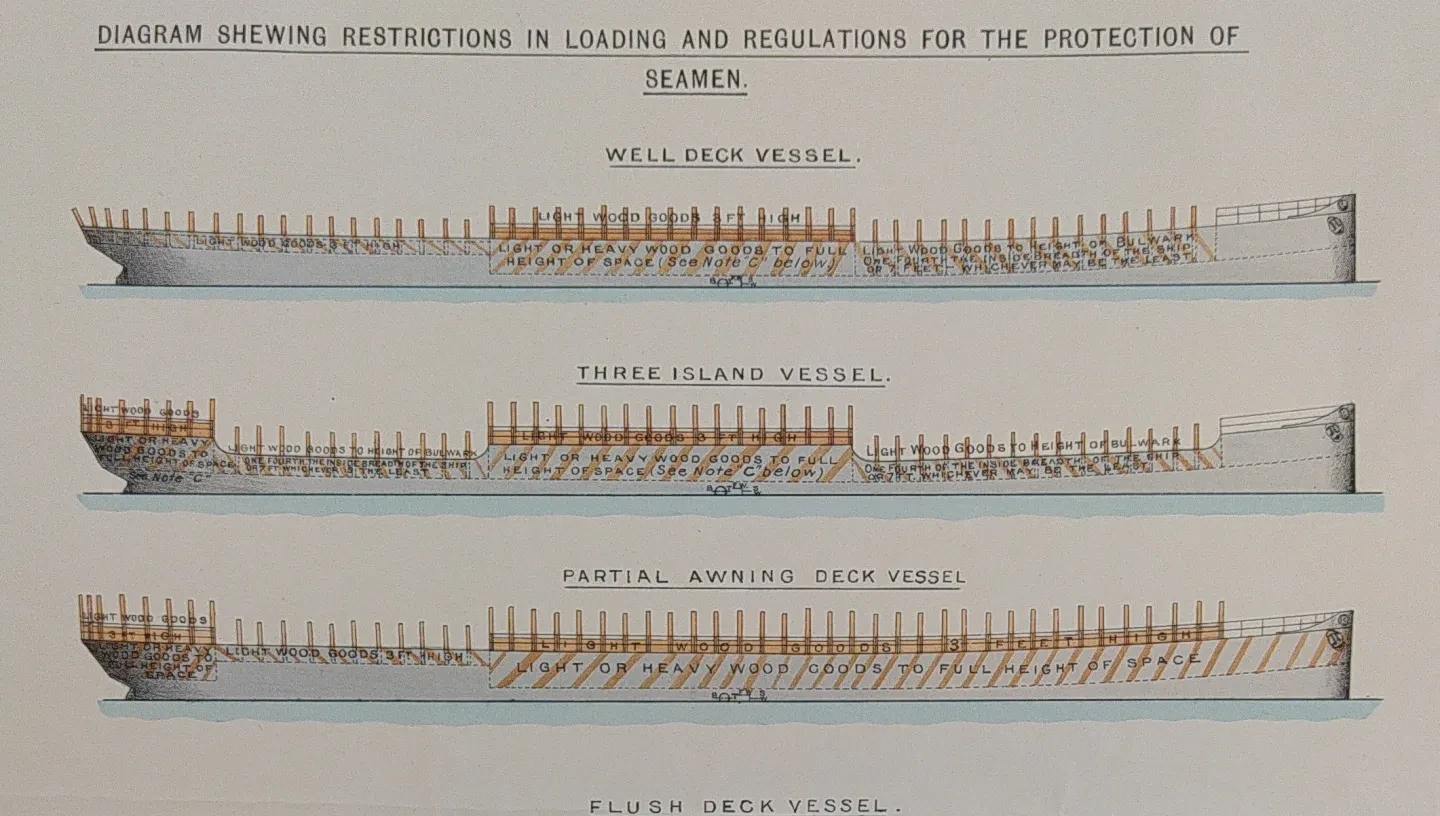
Our archives hold a small collection of papers related to David Lawson, master of a cargo steamer that disappeared in 1905 after leaving the coast of America to return to Europe. They offer clues on what became of SS Freshfield on its journey home.
The SS Freshfield, captained by David Lawson with a 25-strong crew, arrived at Mobile, Alabama in December 1904 to load a cargo of timber. The ship then travelled around the coast to Pensacola in Florida, where more timber was loaded, and onwards to Norfolk, Virginia where the coal bunkers were replenished.
The Freshfield departed Norfolk on 7 February 1905 to make the return voyage across the Atlantic to Europe - but was never seen again. The Board of Trade inquiry into the loss of the Freshfield opened on 23 August 1905, which, incidentally, would have been David Lawson’s 41st birthday.
The Caird Library and Archive collection includes a copy of the inquiry report (which is also available to download from the website of the Southampton Archives). The inquiry noted that before the ship left Pensacola on 29 January 1905, ‘the deck cargo was stored according to the wishes of the master, but not in a manner approved by the stevedore [a dock worker who loads cargo onto ships]’; the latter objected to shorter logs being placed on top as they were impossible to secure and, in his opinion, made the deck load unsafe.
On arrival at Virginia on 4 February, the deck cargo had shifted and was covered with ice, and the ship was listing to the port side. The crew refused to board the ship ‘as they considered the vessel to be so crank that they would sooner go to gaol than go to sea in her.’
The master, in consultation with marine surveyors, was able to right the ship by clearing ice from the deck and rearranging the cargo. They also lightened the ship by discharging about ten per cent of its cargo. Once the surveyors were satisfied that the ship was upright the Freshfield set off from Norfolk on 7 February.
It is clear from his letters that Lawson was very anxious about the voyage and the state of the Freshfield. In a letter to his wife Bella postmarked 10 January 1905 he wrote:
This ship is the greatest chapter of casualties that ever I struck, as she always has you in hot water some how, and if it is not one thing it is the other…
A letter he wrote on 4-5 February mentions the ship listing: ‘everyone on board is afraid of her the way she keels over with these deck cargoes.’ Lawson’s letters possibly shed some light on the disagreement he had with the stevedore in Pensacola, who felt the deck cargo had not been loaded securely. The Freshfield was scheduled to offload cargo at both Hamburg and Rotterdam, and at the Board of Trade Inquiry the vessel’s owners stated they had left it up to the master to decide which port he called at first.
However, Lawson’s letters of 10 and 12 January suggest that the lack of clarity regarding the ship’s ports of call proved problematic for him. On 10 January he wrote ‘they tell me I must load for Rotterdam first, the charterers want Hamburg and of course want to put Rotterdam cargo on the bottom.’ Lawson may well have felt pressured to load the timber as demanded by the charterers, rather than following the advice of the stevedore.
Lawson’s last letter, written over the course of 4 and 5 February, reveals how his questionable decision-making regarding the deck cargo was rooted in the fear of losing his job, which he mentioned several times.
I am really glad the men refused to go in the ship and I would have gone with her and I would only have lost her. However it will be the sack for me.
Elsewhere he writes ‘And I will get the sack now all right neck and crop as they will think that I should have been able to make an allowance for ice and snow.’ Lawson finally seemed to focus on getting home safely, even at the expense of the shipowner’s profits – and his job:
It is not my fault, I did the best I could.…Well we have got away and I hope we will fetch across but I won’t try to hold onto this deck load as she is not safe to come across in winter with her decks full. And they want you to carry all you can so I think they have had it this time at my rate….I suppose I will have to walk the uppers off my boots looking for another job now.
The rapid growth of Britain’s shipping industry over the course of the nineteenth century had been accompanied by an increase in the loss of ships and seamen. There were ongoing attempts to introduce legally binding safety measures, although this was in the face of stiff resistance from powerful shipping interests who did not want what they saw as excessive legislation to affect their profitability.
Perhaps the most notable measure introduced was the marking of load lines on the sides of British merchant ships to indicate how low a fully loaded vessel was legally permitted to lie in the water. Load lines, also known as ‘Plimsoll lines’, after the charismatic campaigner Samuel Plimsoll, were made compulsory by the Merchant Shipping Act of 1876. However, these lines could be placed anywhere; it was not until 1890 that it became mandatory to fix the position of load lines with reference to freeboard tables issued by the Board of Trade, and this law was enshrined in the 1894 Merchant Shipping Act.
The Board of Trade Inquiry concluded that although the Freshfield did have the required freeboard for a winter voyage, the deck load was excessive. In fact, the report is highly critical of winter deck cargoes:
The carriage of deck cargoes across the Atlantic must in all cases be attended with considerable risk, but during the winter months it is doubly dangerous and cannot be too strongly discouraged.
The loss of the Freshfield was even mentioned in a House of Lords debate about the safety of this practice. The collection includes a press cutting of a speech given on 17 March 1905 by Lord Muskerry, who represented the Merchant Service Guild, a trade association for merchant navy captains and officers. The speech is also available to view on the Hansard website:
I… call attention to the continued practice of British ships carrying deck loads across the Atlantic in winter time, and… ask whether all hope of the safety of the steamers Nutfield and Freshfield has now been abandoned…. Last session I introduced a Bill to your Lordships… to prohibit the carriage of deck loads of timber across the Atlantic in wintertime, and I drew attention to the serious disasters and loss of life which have occurred… The Merchant Service Guild which represent a third of the British captain and officers in the merchant service have urged me to assist them in amending the law….
Campaigners were unsuccessful in getting deck loads outlawed entirely. However, the library collection includes a leaflet showing the rules for loading winter deck cargoes of timber for the protection of seaman, as laid out in the Merchant Shipping Act of 1906 (RMG ID: PBP8650). This Act also extended the load line regulations to include foreign ships arriving at British ports.

